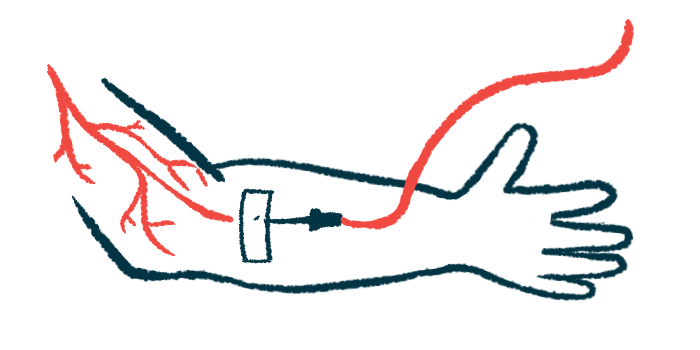Briumvi for relapsing MS now available for patients in Europe
Infusion therapy approved in EU, UK in recent months to reduce relapses
Written by |

Briumvi (ublituximab-xiiy), an approved treatment for relapsing forms of multiple sclerosis (MS), is now available to patients in Europe, where it’s being marketed by Neuraxpharm.
The infusion therapy, developed by TG Therapeutics, was first launched in Germany, with additional rollouts following in other European countries. Under the agreement between the two companies, TG is set to receive a milestone payment of $12.5 million for the treatment’s first launch in a European country.
The commercial availability of Briumvi in Europe comes several months after its approval by the European Commission and the U.K.’s Medicines and Healthcare products Regulatory Agency (MHRA). The two agencies cleared the antibody-based medication for adults with relapsing forms of MS with active disease, as defined by certain clinical or imaging features.
“We want to congratulate our partner, Neuraxpharm, on the official launch of Briumvi in Europe,” Michael S. Weiss, chairman and CEO of TG Therapeutics, said in a company press release.
“This is an exciting day for patients in Europe with [relapsing] MS, and we look forward to sharing additional updates as the European launch progresses,” Weiss said.
Briumvi also is approved in the U.S. to treat adults with relapsing MS, including clinically isolated syndrome, relapsing-remitting MS (RRMS), and active secondary progressive MS (SPMS).
Briumvi developer to get $12.5M payment for 1st launch in Europe
MS is caused by the immune system mistakenly launching an inflammatory attack on the myelin sheath, a protective coating around nerve fibers that helps them send electrical signals more efficiently. B-cells are a type of immune cell that plays a central role in driving these attacks.
Briumvi is a monoclonal antibody that targets target CD20, a protein found at the surface of B-cells, and reduces the amount of these cells in circulation. It is delivered as an hourlong intravenous (into-the-vein) infusion, once every six months, after two initial infusions two weeks apart.
Compared with other anti-CD20 therapies approved for MS — specifically Ocrevus (ocrelizumab) and Kesimpta (ofatumumab) — Briumvi was designed to be more potent. This allows for efficient B-cell depletion with lower doses, enabling the therapy to be infused in shorter periods of time. Such shorter infusions help to reduce the treatment burden for patients.
Briumvi’s approvals were supported by data from two Phase 3 clinical trials, dubbed ULTIMATE I (NCT03277261) and ULTIMATE II (NCT03277248). The trials, both completed in 2020, collectively enrolled more than 1,000 patients with active, relapsing forms of MS.
Participants were randomly assigned to receive Briumvi or Aubagio (teriflunomide), another approved MS medication, given orally, for nearly two years. In both trials, Briumvi significantly lowered relapse rates by more than 49% and reduced the number of lesions with active inflammation by 97% compared with Aubagio.
While a similar proportion of patients in each group experienced disability progression, more patients on Briumvi had sustained improvements in disability — meaning an easing of symptoms. Data also suggested that Briumvi outperformed Aubagio on measures of quality of life.



